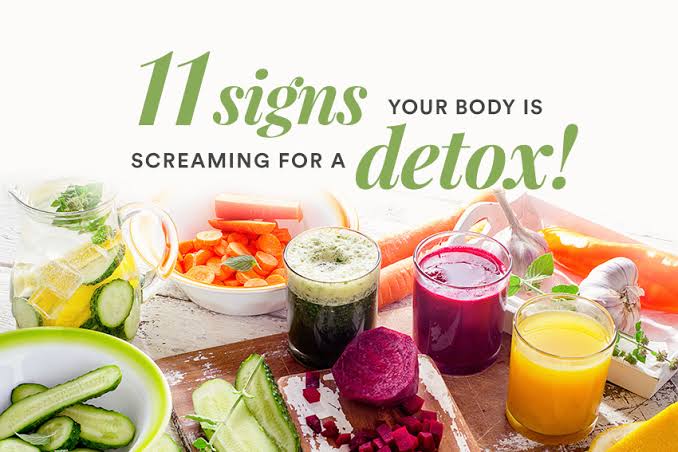
Diets that raise the slogan “purifying the body from toxins” or “detox” are widespread, especially on social media, and are synonymous with unhealthy diets, according to nutritionists! The mentioned diets are called by different names, including: “water detox”, “juice detox”, “vegetable detox”, “tuna detox”, “banana detox”, etc… In the following lines, the nutritionist explains Batoul Totonji told “Madam” the truth about these regimes, which are not based on sound scientific foundations.
Several studies show that common “detox” diets are based on drinking a lot of fluids, and limiting the consumption of calories from food, for a certain time, which ultimately leads to an imbalance of minerals in the body, and causes many symptoms, such as: nausea, vomiting and fatigue. Severe, lack of concentration and headache, in addition to feeling uncomfortable in the stomach or diarrhea enough to lead to dehydration and imbalance of minerals and salts available in the body or even constipation due to the very low percentage of fiber in the body.
There is no need to follow a “detox” diet for the purpose of purifying the body of toxins
Regarding weight loss, it is known that the body loses some kilograms quickly as a result of following “detox” regimes that are light in their contents of carbohydrates, proteins and fats, which reduces daily energy. But the largest percentage of the kilograms lost is muscle, water, and a very small portion of fat. Thus, the rate of burning in the body is greatly reduced. Just because you start eating again, the weight will go up quickly again
How does the body get rid of toxins?
On the other hand, toxic substances are found everywhere; The body may be exposed to the aforementioned substances from the outside or from the inside. In this context, the specialist clarifies that “internal toxins are produced by the body, such as: lactic acid, urea and feces, while the sources of external toxins are: chemicals that are used in the formulations of cleaning products and cosmetics, pollutants in the air or water, and pesticides used in growing food.” The specialist says that “the body gets rid of toxins, on a daily basis, through organs such as: the liver, respiratory system, digestive system, skin and kidneys. So, there is no need to follow a specific diet for this.”
Follow more: Accumulation of body fat between truth and “myths”
The organs of the body get rid of toxins according to the following:
• Liver: The liver is one of the body’s largest organs, and it helps remove toxins and treat various nutrients and medications. It is worth noting that maintaining the health of the liver calls for adherence to a healthy and balanced diet.
Respiratory system: The small hairs inside the nose purify the air that enters the respiratory system from dirt, during the breathing process. The lungs also rid the body of carbon dioxide during exhalation, during the breathing process.
• Digestive system: The small intestine contains a group of lymph nodes that purify food from parasites, or any toxins and foreign substances that may be available in it, before the colon area absorbs the nutrients from the food and transports them to the blood.
• The skin: is the largest organ in the body; It acts as a defensive barrier for it, as it protects it from the entry of some harmful substances into it. However, studies are still being done about sweating, and its role in helping the skin get rid of toxins.
• The kidneys: they purify the body of toxins, while filtering the latter from the blood into the urine.
5 tips to flush out toxins from the body
In the following, the specialist enumerates five tips to expel toxins from the body:
1 Drink an added amount of water, which helps the body regulate its temperature, maintain hydration, improve digestion, enhance the function of absorbing nutrients, protect major organs, and fight high blood pressure.
2 Reducing the intake of processed foods containing chemicals, flavors, colorings, saturated and unsaturated fats, noting that adhering to the aforementioned advice reduces oxidation and inflammation in the body. On the other hand, foods that reduce inflammation in the body include: nuts, seeds, leafy vegetables, garlic, onions, broccoli, cauliflower, fish, turmeric, ginger and mushrooms.
3 Follow a healthy and balanced diet that contains complex carbohydrates, proteins, healthy fats, fiber, fruits and vegetables. The mentioned elements are necessary for the body to provide energy and maintain intestinal health and digestion, as well as reduce the possibility of disease. Foods that promote gut health include: yogurt, garlic, whole grains, dark vegetables, and fruits (especially bananas and apples).
4 Quitting smoking, which increases oxygen in the blood, allows the lungs to restore their functions, reduces the risk of some serious diseases, and improves circulatory function.
5 Relaxing during the day, as well as sleeping enough hours every night, which boosts the immune system, increases the body’s ability to fight viruses, and reduces the possibility of some diseases.






